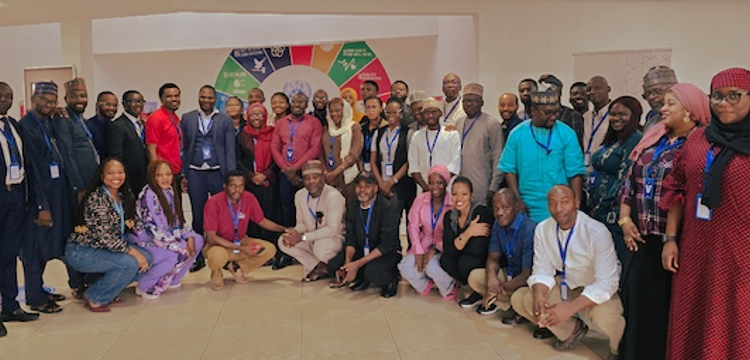
The African Tax Administration Forum (ATAF), in collaboration with the United Nations Development Programme (UNDP), delivered a Data Analytics training to Nigeria’s Federal Inland Revenue Service (FIRS). Held in Abuja from 7–11 April 2025, the workshop underscored ATAF’s commitment to providing technical assistance that strengthens the operational and analytical capabilities of tax administrations across Africa.
Facilitated at the UNDP premises, the training was delivered by ATAF Data Analytics experts Peter Simon Kiyingi and Kondwani Malangwasila, under the coordination of Moses Chamisa (ATAF) and Oyintare Obang (UNDP Nigeria). This initiative forms part of a broader strategy to modernise African tax systems by equipping revenue officials with tools to process, analyse, and act on vast amounts of tax data.
Participants from FIRS engaged in an intensive five-day programme, focusing on three core areas:
• Advanced Microsoft Excel for data cleaning, modelling, and dashboard creation
• Power BI for dynamic data visualisation and compliance monitoring
• SQL for structured data querying and integration
A key outcome of the training was the heightened awareness among FIRS officials of the critical role data plays in modern tax administration. By leveraging Power BI dashboards, DAX formulas, and structured SQL queries, participants gained practical skills to drive better tax compliance and service delivery.
Moreover, the training fostered cross-departmental collaboration within FIRS engaging staff from Compliance, IT, Risk Management, and Research, and sparked conversations about centralising data warehouses and integrating data from multiple sources.
With support from UNDP, ATAF aims to expand such training initiatives to include advanced modules in Machine Learning, Big Data analytics, and automation for compliance processes. By developing in-house analytics champions and supporting structured career pathways, ATAF is helping build sustainable expertise in member countries.
Additionally, ATAF and the UNDP have ongoing technical assistance in Niger on the auditing of the extractives sector and one more in Nigeria on the transfer audits in the oil and gas sector.
The expected outcomes are:
• Strengthen their audit capacity
• Help them on selected audit cases
• Strengthened revenue assessments
• Possible legislative amendments










